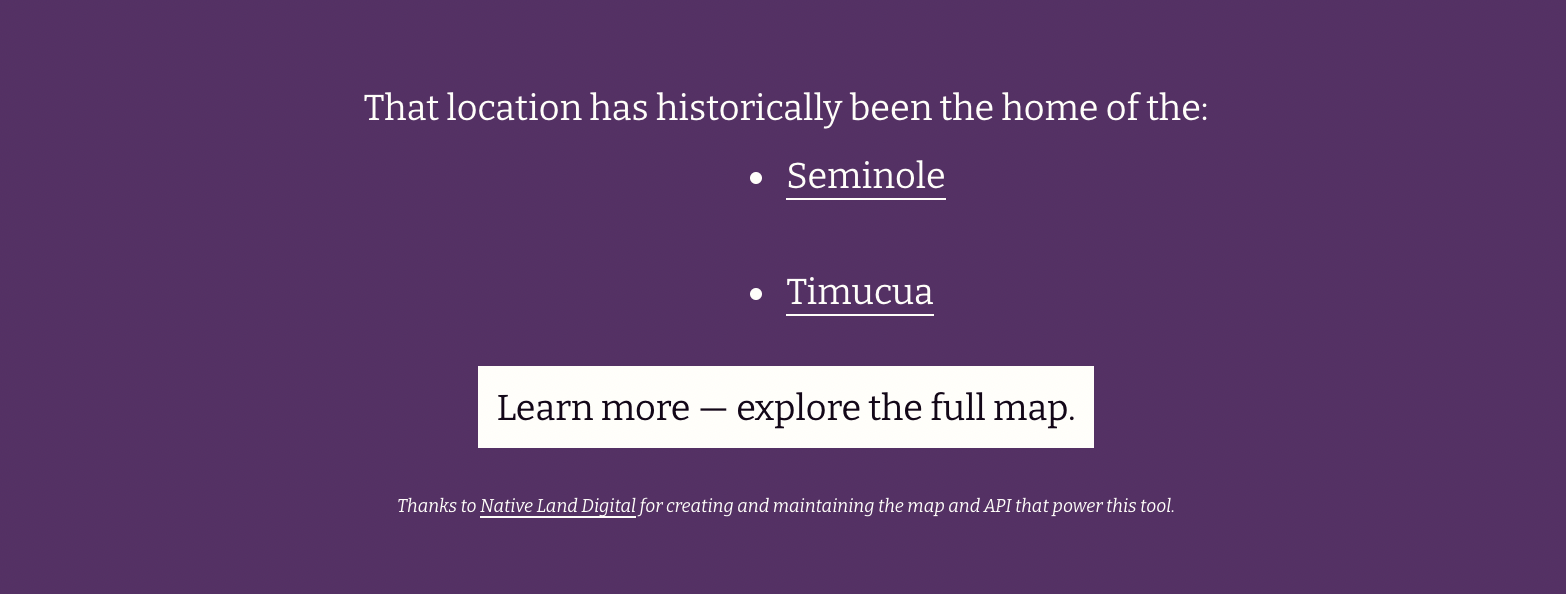Pipe Wrench, an online publication that dissects different topics through longform stories, reactions, interpretations, and asides, has released a free WordPress plugin called Native Land Search. The publication commissioned the plugin from Alex Gustafson, a subscriber and contributor to the magazine.
Native Land Search offers a search block or “Native Lands Aside” block pattern that users can add to the post content. Site visitors can search an address to discover if it is on indigenous lands.

On the Pipe Wrench publication, the content authors have added a Cover block with a background image and put the search block inside the Group block.
Here is an example of the output for a Florida location:

The search results are powered by the native-land.ca API and Google Geocoding API. Native Land Digital, a non-profit organization, created the maps with the following mission:
We strive to map Indigenous lands in a way that changes, challenges, and improves the way people see the history of their countries and peoples. We hope to strengthen the spiritual bonds that people have with the land, its people, and its meaning.
We strive to map Indigenous territories, treaties, and languages across the world in a way that goes beyond colonial ways of thinking in order to better represent how Indigenous people want to see themselves.
Native Land Digital notes that the maps do not represent or intend to represent official or legal boundaries of any indigenous nations.
“All kinds of sites — magazine, newspaper, personal blog, academic hub, nonprofit — can use the block to add depth to all kinds of content involving Indigenous groups,” Pipe Wrench Editor Michelle Weber said. “LandBack, residential schools, climate change, general history — offering this search tool helps non-indigenous folks uncover and understand vital histories with ongoing ramifications.”
The Native Land Search Plugin is available for download from WordPress.org and contributions can be submitted on GitHub. It may never have a million active installs but the plugin could be an important tool for sites involved in education or advocacy efforts.
